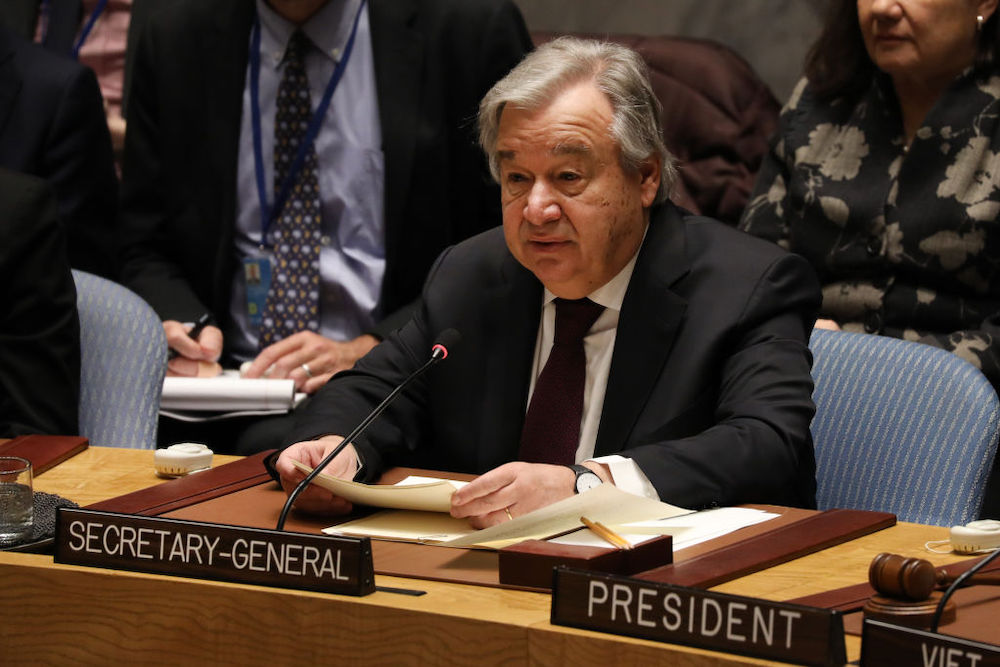- The U.N. launched a COVID-19 plan to end the pandemic and rebuild a post-virus economy.
- Secretary-General Guterres says the pandemic is signaling the need for a better worldwide wide public-health infrastructure.
- COVID-19 shines a spotlight on the vulnerability of people to diseases that originate anywhere on earth.
United Nations Secretary-General António Guterres’ plan to cope with COVID-19 and “build a better world” may require the commitment and participation of impact investors.
The pandemic is the biggest challenge that the world has faced since World War II and needs a coordinated response, Guterres said this week. He called for rich countries to help those that are less developed and for nations to target aid to the most vulnerable within their borders. The novel coronavirus is killing thousands, halting the movements of people around the world and seizing up the global economy.
“Hopefully, there is a silver lining to this,” Caitlin MacLean, the Milken Institute’s senior director for innovative finance, told Karma. “People will realize that there’s a need to invest in communities next door and across the globe, that this is important for all of our health.”
The U.N. projects that up to 25 million jobs could be lost globally and that foreign direct investment flows will tumble by as much as 40%, to their lowest level in decades. The U.N. is calling for a comprehensive multilateral response that amounts to at least 10% of global gross domestic product to fight COVID-19.
The coronavirus emergency might lead to “a realization, that the weakest health system is everyone’s weakest link,” MacLean said.
The U.N. aims to help bring the outbreak to an end, and then build more “inclusive and sustainable economies” that are better able to respond to future pandemics and climate change. This is a tall order that will need cooperation by governments, civil society and industry. The impact investing community also has a part to play, according to Milken’s MacLean.
“There’s a lot of interest in sustainable investment with a double, or triple bottom line return,” MacLean said. “Investors will be looking at companies and the impact they say they are going to have.”
The growth of impact investing has shown that profits can be paired with broader goals. The COVID-19 pandemic underscores the need for business to play a positive role in society. Companies ranging from Pepsi to Facebook have taken steps to help small businesses, provide food and medical supplies to those in need. Impact investors can make a difference by holding companies accountable and making sure they follow through with their promises.
Private equity, which can take a longer time horizon on investments, can make a big difference by focusing attention on the medical and clean energy sectors.
“Investments are needed in drug and vaccine development,” she said. “However, these haven’t been appealing to many investors because they are very expensive, often taking a billion dollars and years of time to come to market.”
The World Economic Forum recommends that companies that receive long-term public financial assistance should be required to take three actions that could come from the impact investing handbook. They must first include risk in company disclosures, and in the case of climate, in line with Task Force on Climate-related Financial Disclosures guidelines. Secondly, they must take science-based data when setting policy, especially when it comes to climate change. Finally, they must be required to invest in low-carbon solutions that create many jobs.
Photo by Spencer Platt/Getty Images






















